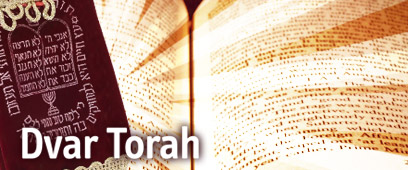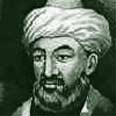

The Rambam in the Laws of Teshuva 7:1 says that since free choice is granted to all people, a person should always strive to do Teshuva, L’Hishtadel. There is a question on this statement.
The Rambam (Maimonides) has been discussing Teshuva for six chapters already, so why does he want to tell us now that a person should strive to do Teshuva? What does it mean to strive to do Teshuva? Aren’t we commanded to do Teshuva?
- To listen to the Dvar Torah click here
In order to understand the Rambam, we need to analyze the word “L’Hishtadel” - to strive or to put effort into something. From the words of the Shulchan Aruch Siman 250 and Siman 260 it seems from Rabbi Yosef Karo that the word L’Hishtadel doesn’t refer to an obligatory deed but rather something good one should strive to do.
In Siman 250 the Shulchan Aruch says that a person should rise early on Friday to prepare for Shabbat, and even if someone has many servants, he should strive to do something on his own. This striving is not something you are obligated to do, but it’s something good and saintly to do.
However, the Rambam in the laws of Shabbat Chapter 36 on the same topic translates L’Hishtadel as a requirement and not simply a good thing to do. So perhaps the Rambam in the Laws of Teshuva also means that one is required to do Teshuva, and it’s not simply a good thing to do. But perhaps there is a deeper explanation of the Rambam in the Laws of Teshuva.
Life long process
When the Torah describes the fight between Yaacov and the Angel of Esav, the Torah uses the word “VaYe’avek” for fighting, but the Aramaic translation of Unkelus translates it as VaYishtadel, to strive. Perhaps this will help explain the Rambam.
The Rambam understands that there is a requirement to do Teshuva, as he explains in the first six chapters in the Laws of Teshuva. However, in the seventh chapter, the Rambam is describing the reality of Teshuva, which involves struggle, a constant struggle that requires strong will and self control. Teshuva is a life long process. It is a commandment, but there is also a reality of self control and struggle.
We need to understand this concept not only regarding Teshuva, but also regarding our Jewish identity in the Land of Israel. It is a constant struggle, a daily struggle that requires us to always be aware of ourselves and the world around us. It requires us to have a strong will to build and flourish.
On this Rosh Hashanah, let us accept upon ourselves to be an active player in this struggle for our identity and state, and each one of us counts. On this Rosh Hashanah, we need to each take an active roll to struggle and with the help of God we will succeed.
Rabbi Shai Finkelstein is the rabbi of Baron Hirsch Congregation, Memphis Tennessee.
Courtesy of the Orthodox Union Take Five for Torah program















